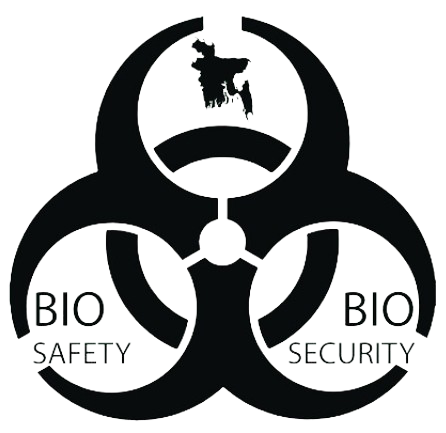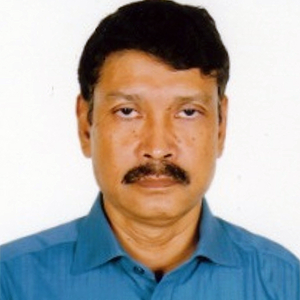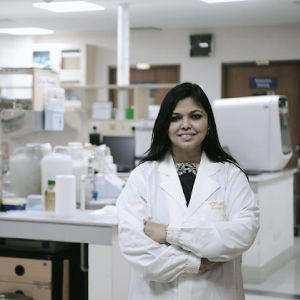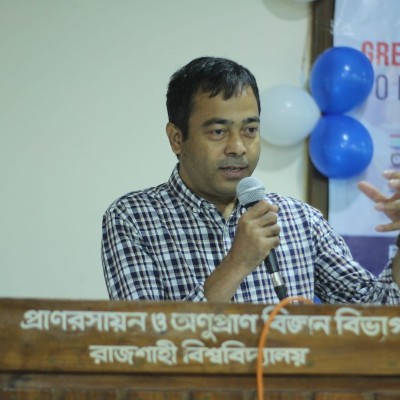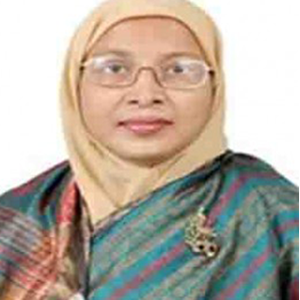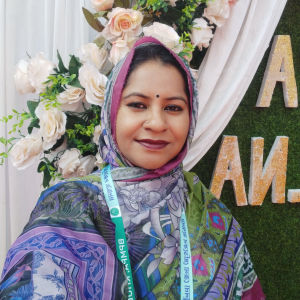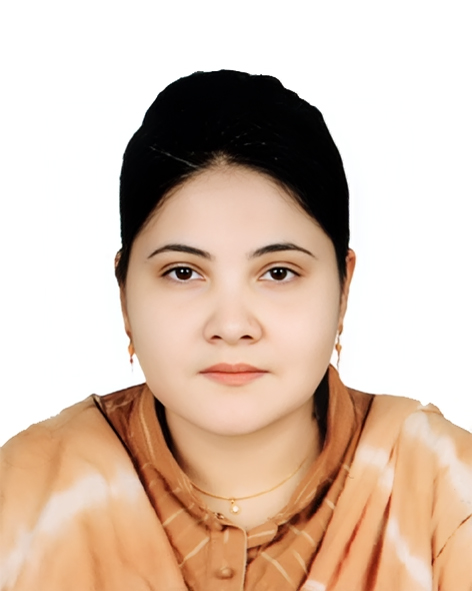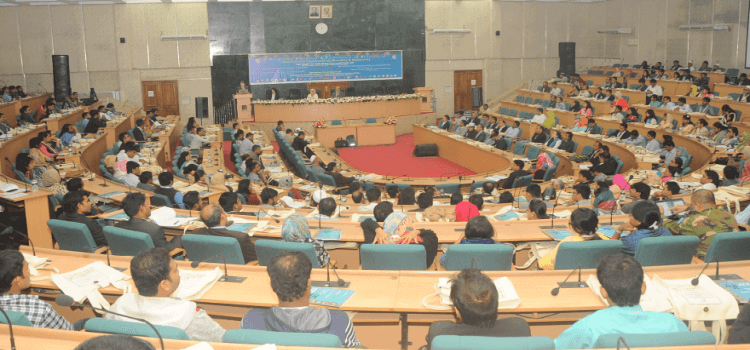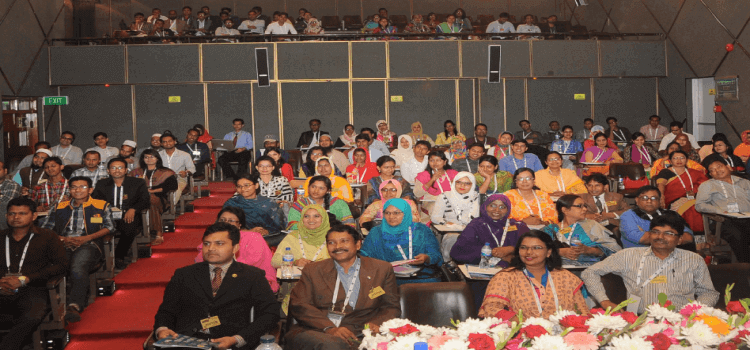BBBS Annual Biorisk Conference 2025 On Containment of AMR, Biohazardous Waste Management, Biosafety, Biosecurity, and Biotechnology
Conference/Workshop
Introduction
The annual conference and preconference workshop aim at generating a forum to exchange on the various current Biosafety and Biosecurity issues of concern at the global, regional, national and technical level. International biosafety experts and professionals from around the world will be speaking and sharing their knowledge and experiences. The conference is be a valuable opportunity for networking and be updated with the current development on biosafety and biosecurity uniquely in Bangladesh, in the region surrounding Bangladesh, and in the whole world as well.
Who Should Attend
* Agriculturalist, Biochemist, Biotechnologists, Botanists, Clinical Biochemists, Clinical Microbiologists, Clinical Pathologists, Environmentalists, Medical Doctors, Medical Microbiologists, Medical Technologists, Microbiologists, Molecular Biologists, Veterinarians, and Zoologists including all the disciplines of Biological Sciences.
* Biosafety Professionals and Practitioners
* Biosafety Managers
*Consultants in relevant areas
* Engineers and Architects working for designing hospitals, laboratories, or related facilities
* Professionals interested in the updates on Biosafety and Biosecurity
* Scientists, Researchers and Laboratory Workers
Register Online and Submit Abstract
Event: Preconference Training Workshop
Venue: WAFFEN Research Laboratory, Blue-Moon Tower, Kalshi Road, Matikata, Dhaka
Day 1 - 14 November 2025;Time: 09:00 - 16:30
Training Workshop 1: Biosafety and Biosecurity in Microbiological and Biomedical Research and Diagnostics
Training Workshop 2: Biosafety Cabinet Selection, Installation, Calibration and Certification
Day 2 - 15 November 2025; Time: 09:00 - 16:30
Training workshop 3: Biohazardous Waste Management
Training Workshop 4: Chemical Safety
Training Workshop 5: Writing Standard Operating Procedure
---------------------------------------------------------------------------------------------------------------------
Event: Annual Conference
Venue: Sasakawa Auditorium, icddr,b
Date: 13 December 2025; Time: 08:30 - 17:00
08:30 – 09:30 Registration
09:30 – 10:30 Opening Ceremony
A holistic approach and a strategic vision for Biohazardous Waste Management
10:30 – 11:00 Morning Tea
11:00 – 12:00 Technical Session 1:
Biohazardous Waste Management Practices: This session will accept and present talks on detail of waste management practices and advancement in current time. Abstracts are invited to be submitted under this section relating waste management practices and future advancement in human health, animal health, fisheries and aquatic health.
12:00 – 13:00 Technical Session 2:
Control of Spread of Infectious Diseases and Antimicrobial Resistance in Human Health: This session will accept abstracts on biohazardous waste management in the control of infectious diseases and AMR in animal health fisheries sector. Diseases diagnosis, treatment, , and production of animals and different fishes generates large quantity of biohazardous wastes. That contain antibiotic resistant organisms and residual antibiotics, as well. Abstracts are invited to be submitted under this section relating waste management practices and future advancement in animal health, fisheries and aquatic health. Researchers are also invited to submit abstracts from any areas on infectious diseases control under animal and aquatic health to be presented under this section.
12:00 – 13:00 Technical Session 2A:
Open Presentation Session: Researchers are invited to submit abstracts to be presented under this section from any area biotechnology, biosafety, or biosecurity focusing on recent advancement in biosciences, biosafety, biosecurity, biotechnology, and AI in biorisk management.
11:00 – 12:30 Poster session and idea contest
Students and young researchers are invited to submit abstracts to be presented under this section as posters from any area biotechnology, biosafety, biosecurity, innovations in medical waste management focusing on recent advancement in biosciences, biosafety, biosecurity, and in biotechnology. Selected abstracts submitted by the students will be invited for oral presentation with attractive future opportunities.
13:00 – 14:00 Lunch and Prayer Break
14:00 – 15:00 Technical Session 3 (parallel session)
Guidelines, Policies, Rules, SOPs, and Standards for Medical Waste Management: scientists are invited to submit abstracts on resent advancement and implimentation of Guidelines, Policies, Rules, SOPs, and Standards for Medical Waste Management
14:00 – 15:00 Technical Session 3A (parallel session)
Control of Spread of Infectious Diseases and Antimicrobial Resistance in Animal and Environmental Health: This session will accept abstracts on biohazardous waste management in the control of infectious diseases and AMR in human health sector. Treatment, diseases diagnosis of infectious diseases generates large quantity of biohazardous wastes that are the source of infections and residual antibiotics contributing to generation and spread of antibiotic resistance organisms. Abstracts are invited to be submitted under this section relating waste management practices and future advancement in human health, animal health, fisheries and aquatic health. Researchers are also invited to submit abstracts from any areas on infectious diseases control under human health to be presented under this section.
15:00 – 16:30 Technical Session 4
Dialogue on Optimizing Medical Waste Management System in Bangladesh
16:30 – 17:00 Afternoon Tea and End
Benfits to join
Great Speakers
BBBS conference provides attendees with the opportunity to engage with esteemed speakers, gaining valuable insights and knowledge to enhance their understanding of biosafety, biosecurity, and public health..
Experience
Our conference offers an enriching experience, providing participants with valuable networking opportunities, cutting-edge research presentations, and practical insights to advance their expertise in biosafety and biosecurity..
Networking
BBBS conference allows participants to connect with like-minded professionals, forge collaborations, and exchange ideas, fostering opportunities for mutual growth and advancement in the field of biosafety and biosecurity.
Party
BBBS conference primarily focuses on professional development and knowledge exchange, attendees may also enjoy informal social gatherings, fostering camaraderie and relaxation after engaging sessions and discussions..
Abstracts submission guidelines
Contribution or advancement in any area of medical waste management and AMR prioritizing safety and security or direct contributing in the field of biosafety, biosecurity, biological waste management, will be considered for submission. The priority areas are-
- Biohazardous Waste Management and Control of Spread of Infectious Diseases and Antimicrobial Resistance in Human Health
- Biohazardous Waste Management and Control of Spread of Infectious Diseases and Antimicrobial Resistance in Animal and Environmental Health
- Biohazardous Waste Management and Practices
- Guidelines, Policies, Rules, SOPs, and Standards for Biohazardous Waste Management and
- Biological waste management
All abstracts must be in ENGLISH, the combined length of the abstract title, list of authors, and body should not exceed 300 words. Please be sure to carefully check your abstract for content errors, spelling, names, etc. before submitting. BBBS does not proofread for correct spelling, typographical, grammatical, or scientific errors, nor can changes be made once the abstract is submitted.
- Title should be brief, in bold capital letters at the top of the abstract
- Author(s) should be listed by surname (underline) and initials, with the presenting author’s name underlined
- The designation and organization should immediately follow the authors’ names (Organization/Institute, department, city, state, country of author)
- Text must be typed single-spaced, font 12, Times New Roman, with only the left margin justified
- Leave one line between the title/author/institution and the body of the abstract
- Each abstract should contain: (a) an introductory sentence indicating the objective of the abstract (b) main content, including methods and results if relevant and (c) conclusions. It is expected that the abstract will include the summary of the original presentation
- Gaphs, tables and illustration cannot be included in the abstract
- The abstract document MUST BE in WORD.doc format. Any other file type WILL NOT be accepted
- Abstracts must be submitted ON LINE as Microsoft Word" or PDF file.
Abstracts not accommodated for oral presentation will automatically be posted for poster presentation!
Speakers
Md. Giasuddin
Vice-ChairmanLatiful Bari
Vice-ChairmanMd. Atiar Rahman
Vice PresidentPartha Sarathi Gope
ManagerMd. Abdul Alim Al-Bari
ProfessorMd. Golam Azam Chowdhury
Upazilla Livestock OfficerAlam Khan
ProfessorMd. Nazmul Hoque
Associate ProfessorSajedul Hayat
Upazila Livestock OfficerMd. Nurul Alam
Livestock OfficerS.M. Shahidul Islam
Superintendent of PoliceNoorjahan Begum (Maliha)
Assistant Scientist, Virology Laboratory, Infectious Diseases Division, icddr,b, 68 Shaheed Tajuddin Ahmed SaraniMohakhali, Dhaka-1212S M Shahriar Rizvi
EvaluatorMd. Abu Sayed
ProfessorMd. Royhan Gofur
ProfessorMd. Barkatul Alam
Fish Inspection and Quality Control OfficerSohrab Alam
Chief Research Officer and Head, Department of Immunology and Molecular Diagnosis, BIRDEMDr. Monira Ahsan
Professor of Department of Pharmaceutical Chemistry, University of DhakaDr. Abed Chaudhury
Geneticist, Writer, Krishan Foundation Pty Ltd.Dr Saif Ullah Munshi
Professor and Dean, Basic Science and Para–Clinical Science, and Director Super Specialized Hospital, Bangladesh Medical UniversityMd Habibullah Fahad
Field Research Manager, Emerging Infections Infectious Diseases Division, icddr,bDr M. Tofazzal Islam
Professor, Institute of Biotechnology and Genetic Engineering (IBGE) Gazipur Agricultural University, Gazipur 1706, BangladeshAshis Kumar Kundu
Additional District Livestock Officer (ADLO)MD IMAM HOSSAIN
Research TraineeMd. Nuhu Amin
Associate ScientistFahmida Dil Farzana
Assistant ScientistNuzhat Shamiha Alam
Project Research PhysicianTasnim Bakir
Project research physicianBabry Fatema
Assistant ProfessorShoma Hayat
Assistant ScientistDr. A. K. M. Humayun Kober
Professor and Director (PRTC)Schedule Plan
10:30 AM

Opening Ceremony
01:00 PM

Technical Session 2
03:00 PM

Technical Session 3
04:30 PM

